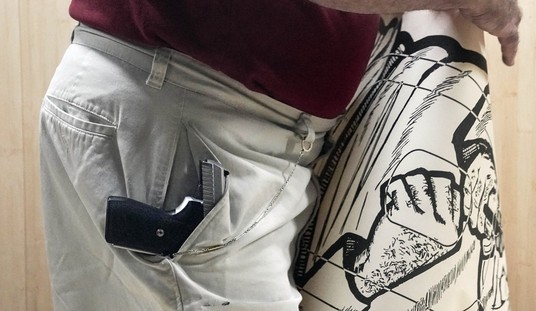An infantry unit’s job is to shoot, move and communicate. The reality of the matter, though is that the noise of shooting—especially from a unit’s automatic weapons—makes communicating effectively amidst the noise a tough job, which both complicates orders to move and the directing of more accurate fires on target to suppress the enemy.
An entire infantry battalion is now going to outfit all their primary weapons, from carbines to .50 BMG machine guns, with silencers, in an experiment to see how reducing the sound of battle enhances combat effectiveness.
In a series of experiments this year, units from 2nd Marine Division will be silencing every element of an infantry battalion — from M4 rifles to .50 caliber machine guns.
The commanding general of 2nd Marine Division, Maj. Gen. John Love, described these plans during a speech to Marines at the Marine Corps Association Ground Dinner this month near Washington, D.C.
The proof-of-concept tests, he said, included Bravo Company, 1st Battalion, 2nd Marines, which began an Integrated Training Exercise pre-deployment last month at Marine Corps Air-Ground Combat Center Twentynine Palms.
“What we’ve found so far is it revolutionizes the way we fight,” Love told Military.com. “It used to be a squad would be dispersed out over maybe 100 yards, so the squad leader couldn’t really communicate with the members at the far end because of all the noise of the weapons. Now they can actually just communicate, and be able to command and control and effectively direct those fires.”
Chief Warrant Officer 5 Christian Wade, the division’s gunner, or infantry weapons officer, said the Lima companies in two other battalions — 3rd Battalion, 6th Marines, and 3rd Battalion, 8th Marines — now had silencers, or suppressors, on all their rifles, including the M27 infantry automatic rifles. All units are set to deploy in coming months. The combat engineer platoons that are attached to these units and will deploy with them will also carry suppressed weapons, he said.

I’ve got a little trigger time with silencers, on pistols, shotguns, and more than anything else, the AR-15/M4 platform, in versions both semi-automatic and selective-fire variants (above, on a Little Bird, in a Florida prison, but that’s a story for another time).
While silencers don’t make machine guns or carbines quiet, they can reduce noise enough to enable much better and faster communication, and enable teams to communicate over greater distances, despite the chatter of support weapons.
The downside of silencers is that they add considerable cost, increase the frequency of required maintenance (suppressed guns run dirtier), shift the point-of-aim/point-of-impact (POA/POI) when put on or removed from the weapon, and get very, hot very fast.
It’s going to be very interesting to see what conclusions the Marines draw after the widespread issuance of silencers in these exercises, and whether they are deemed to be as good an investment on the battalion level as they are for more specialized troops.







Join the conversation as a VIP Member